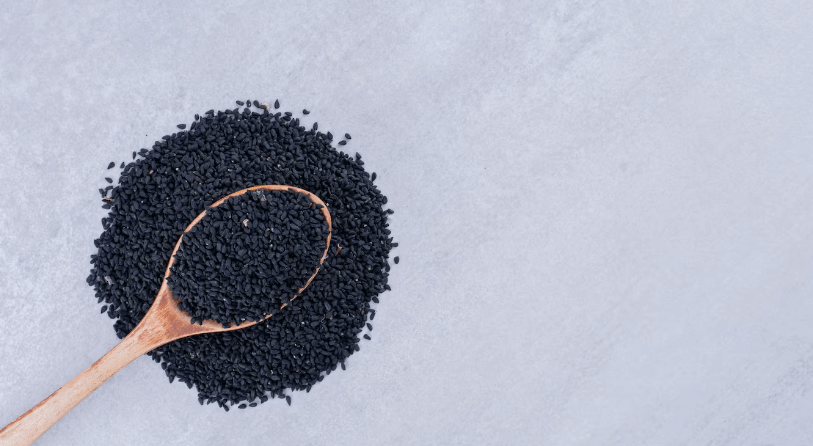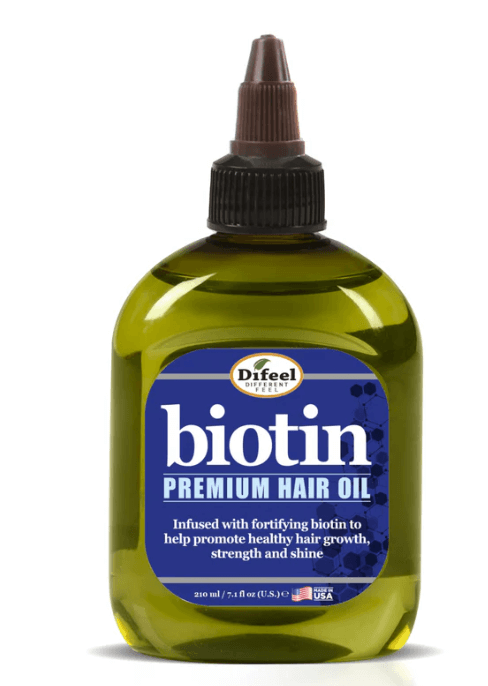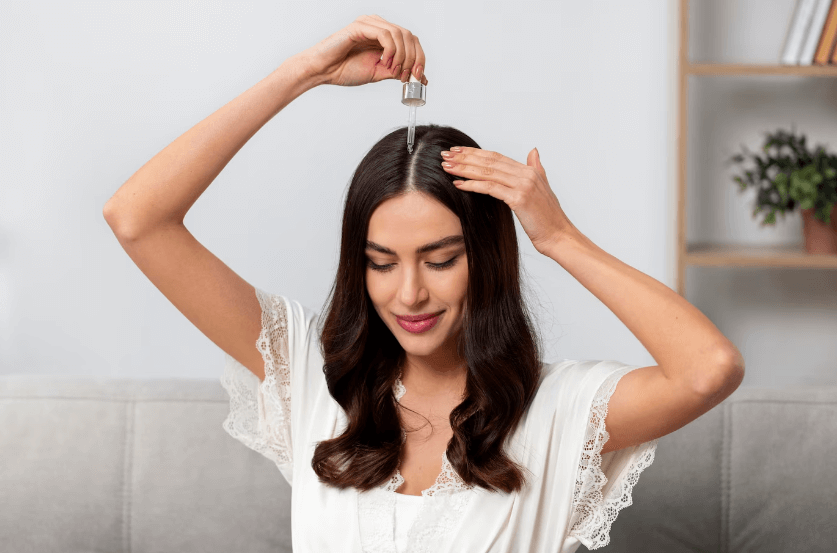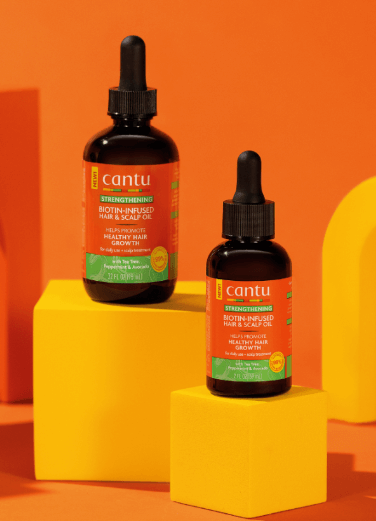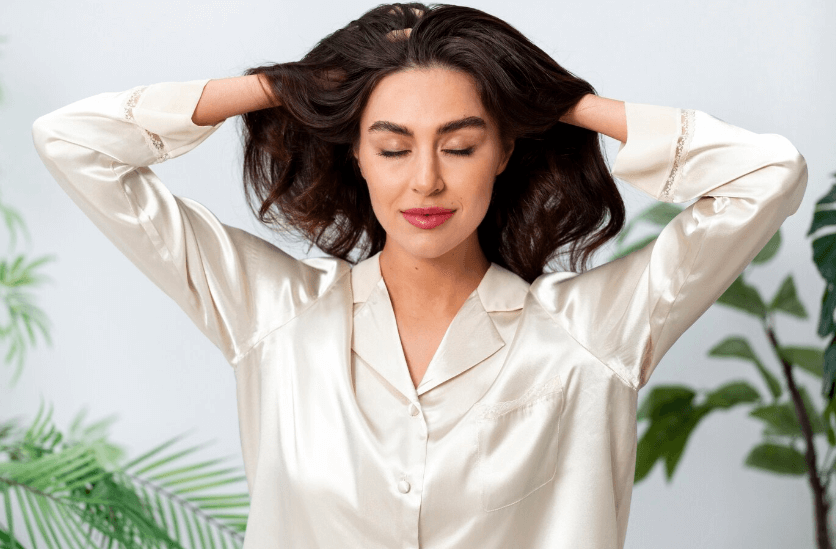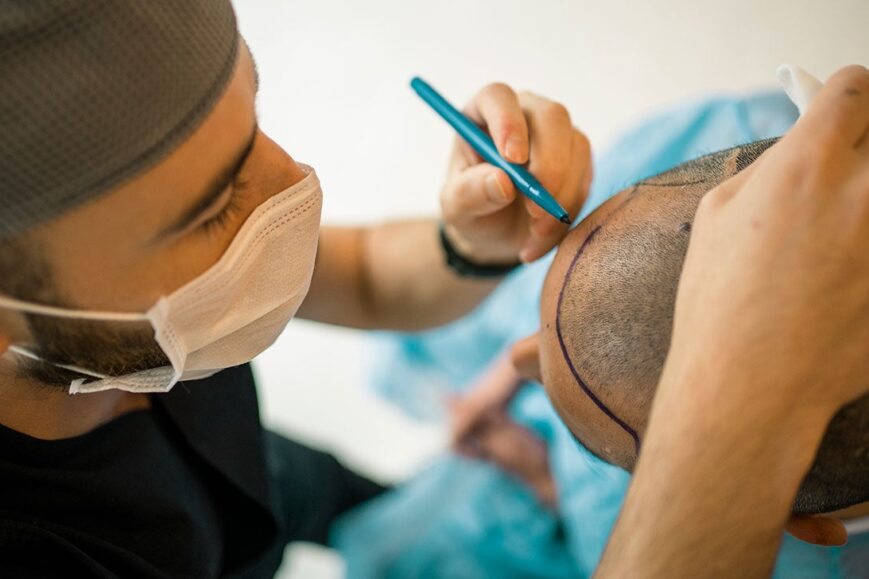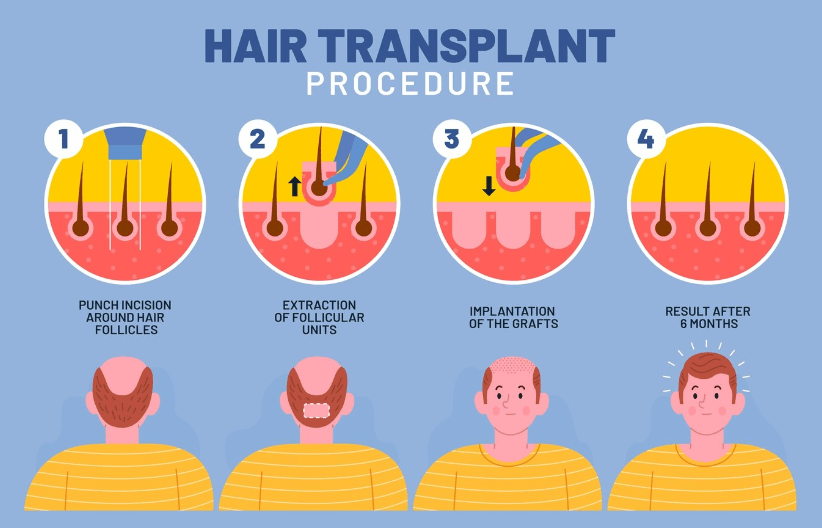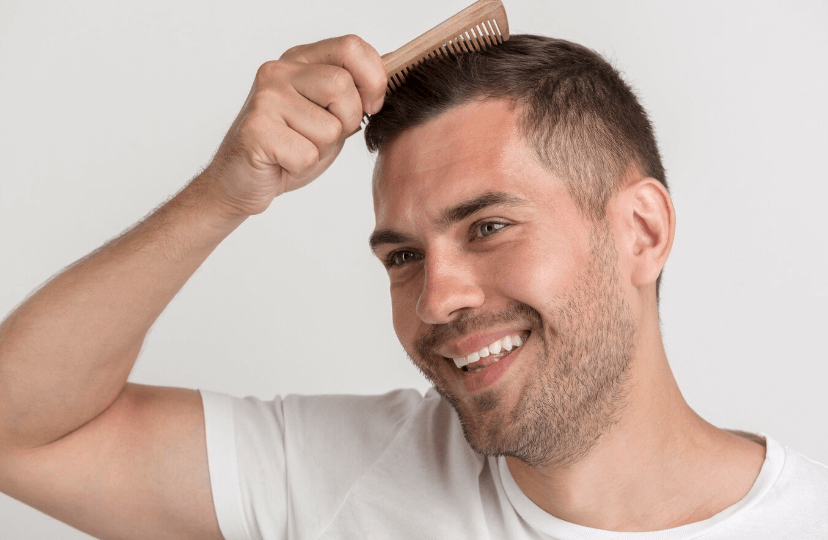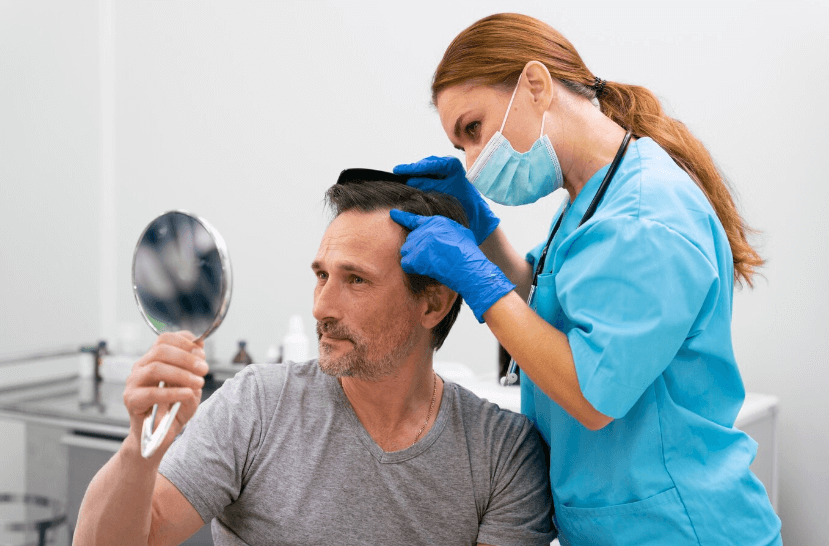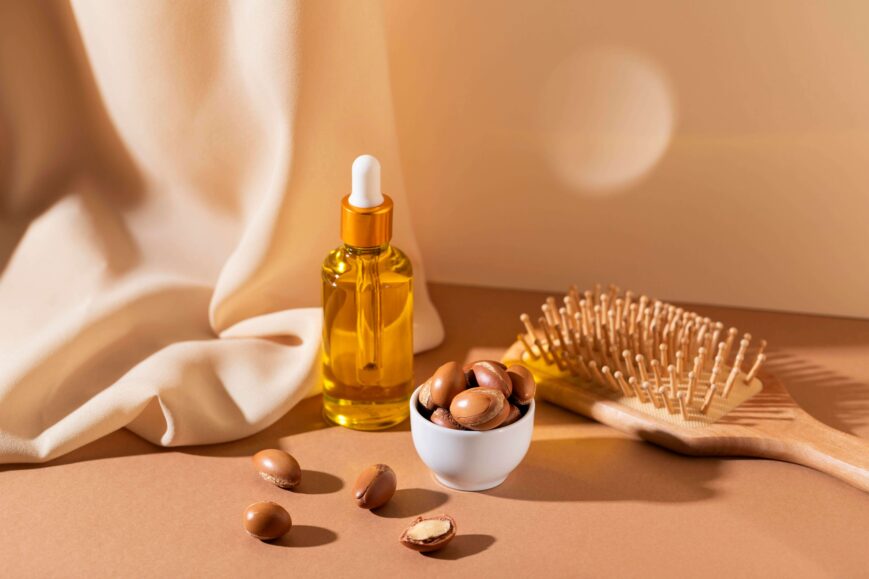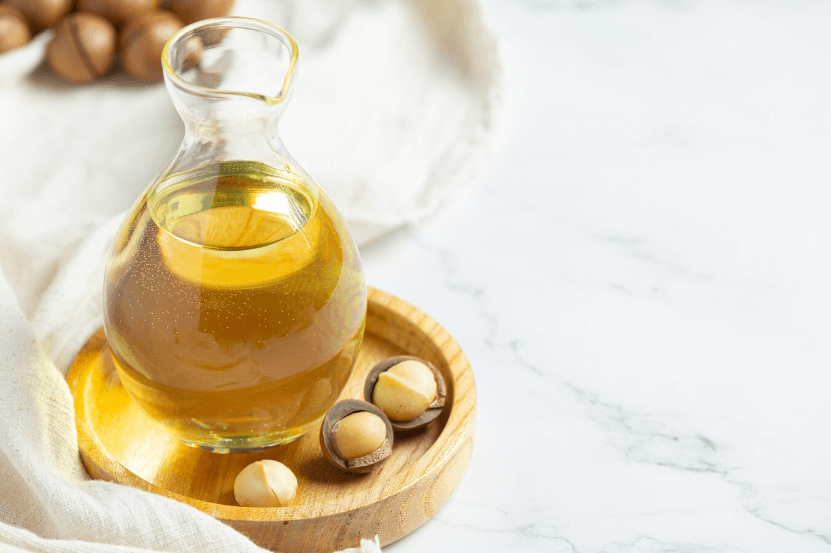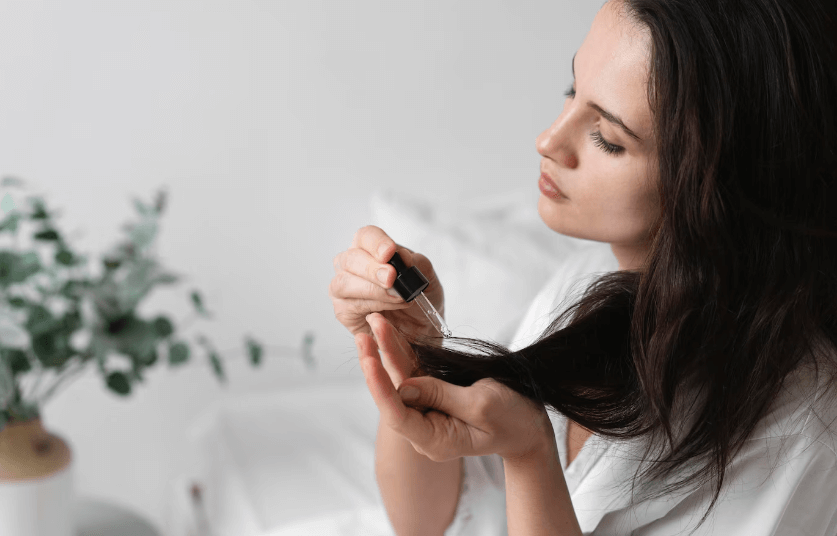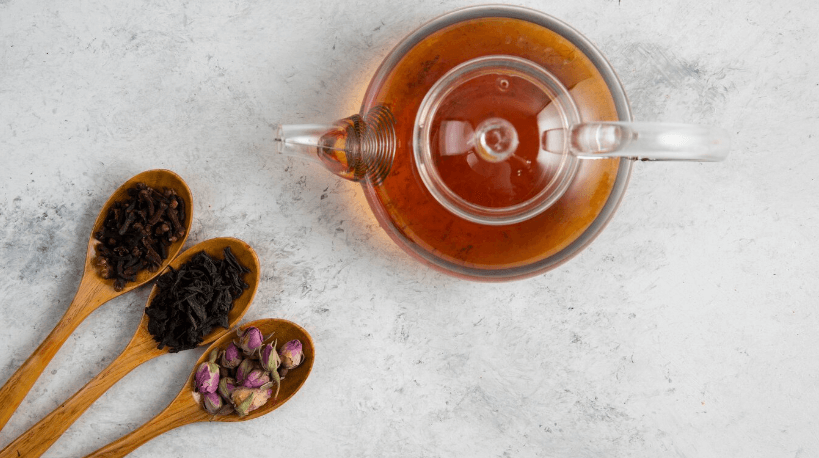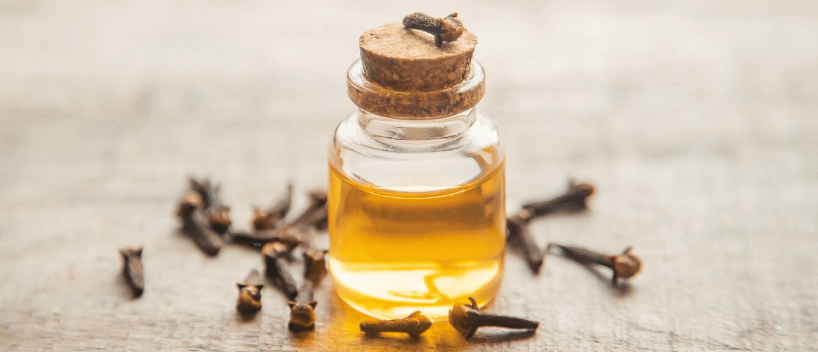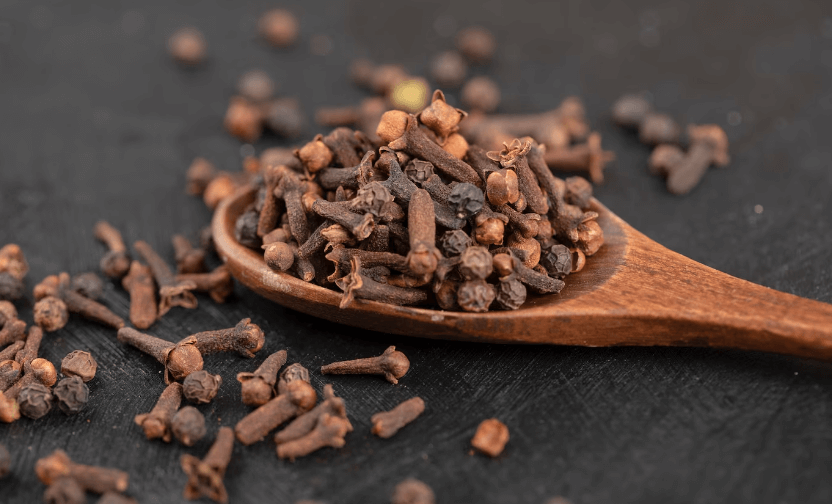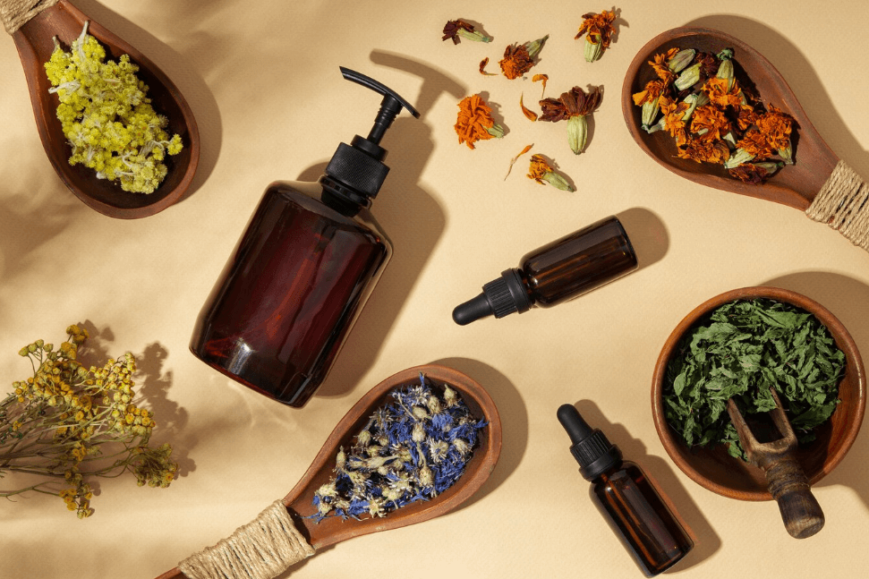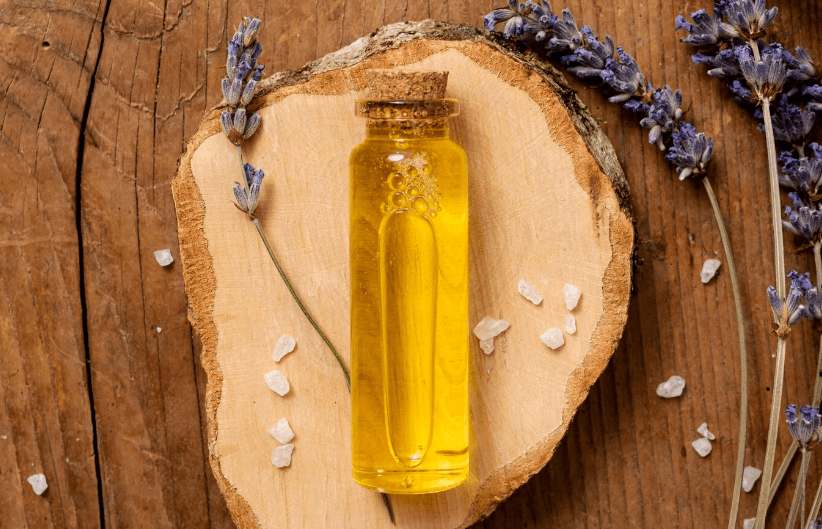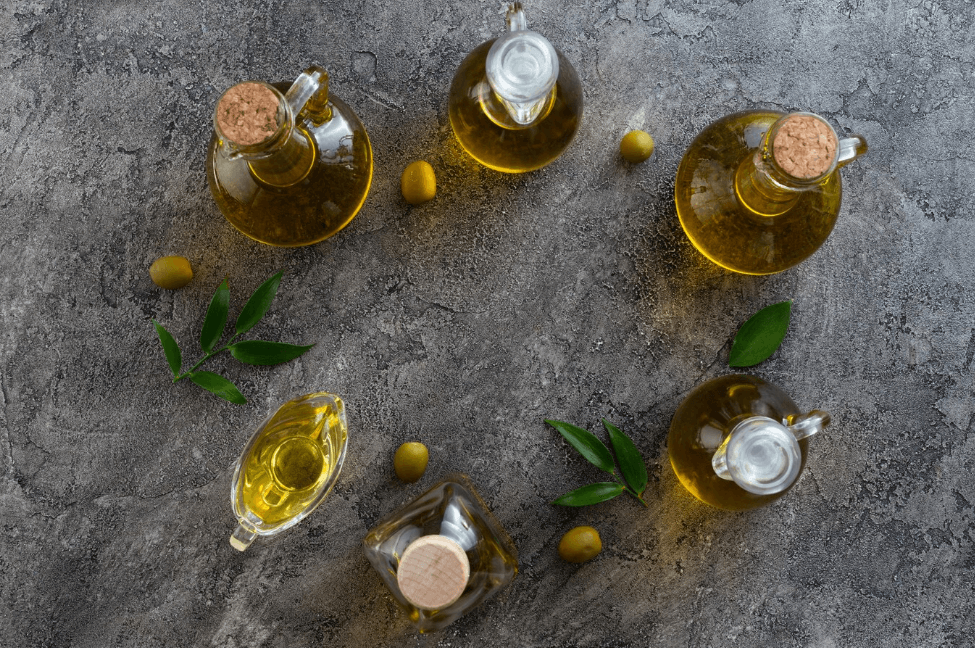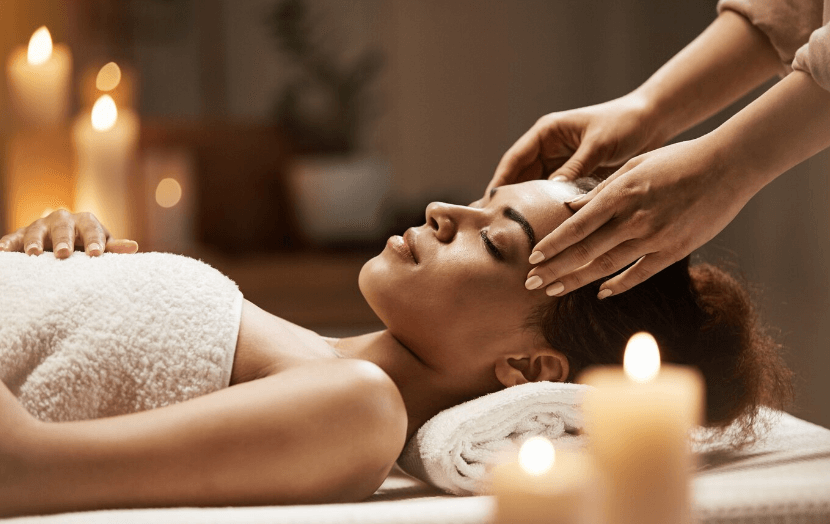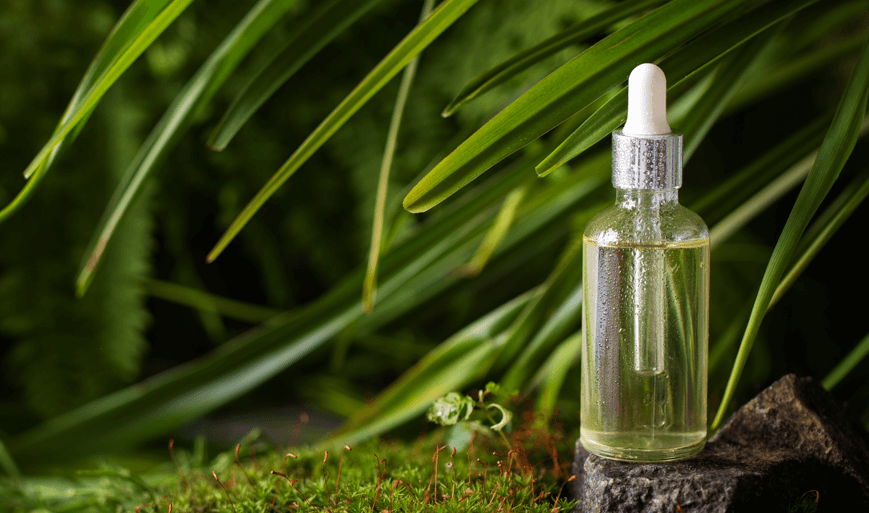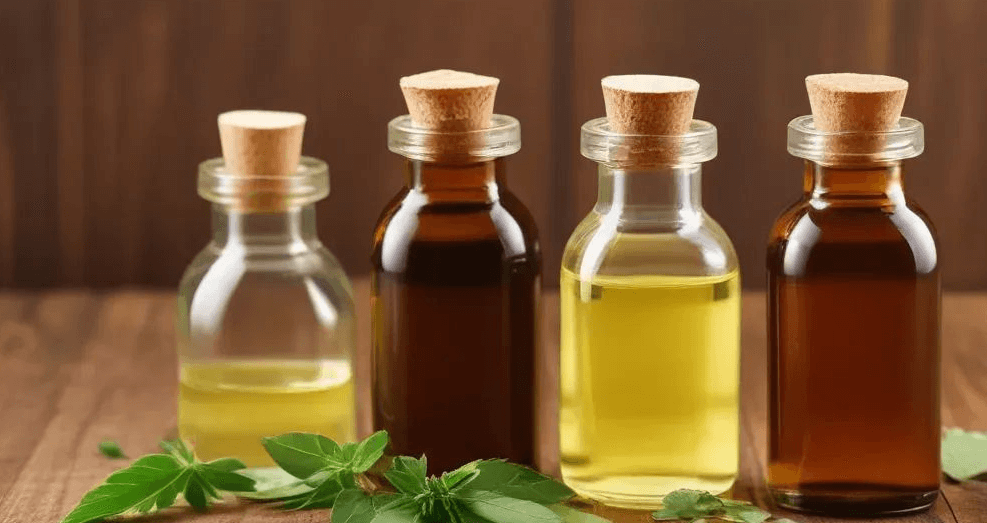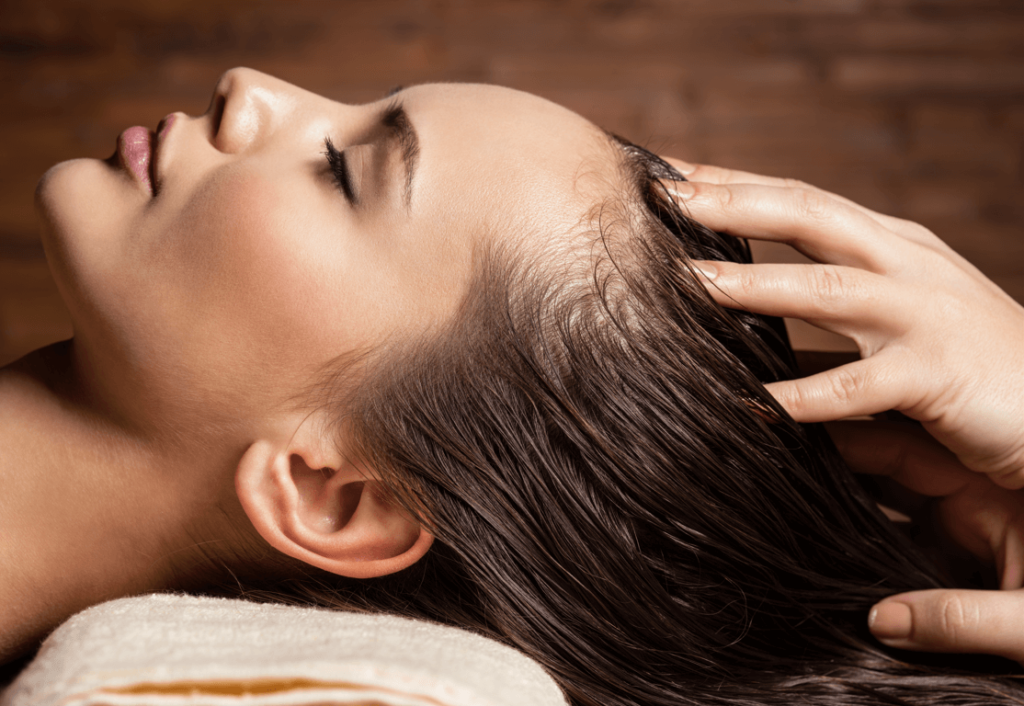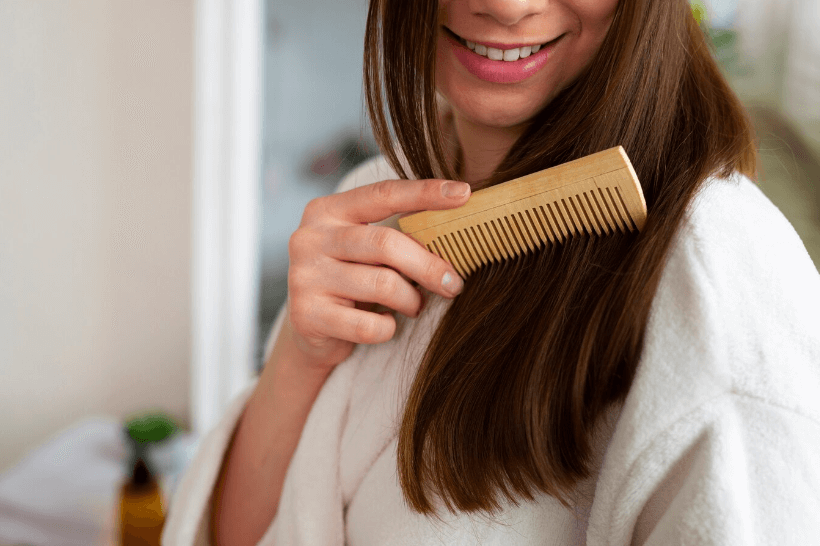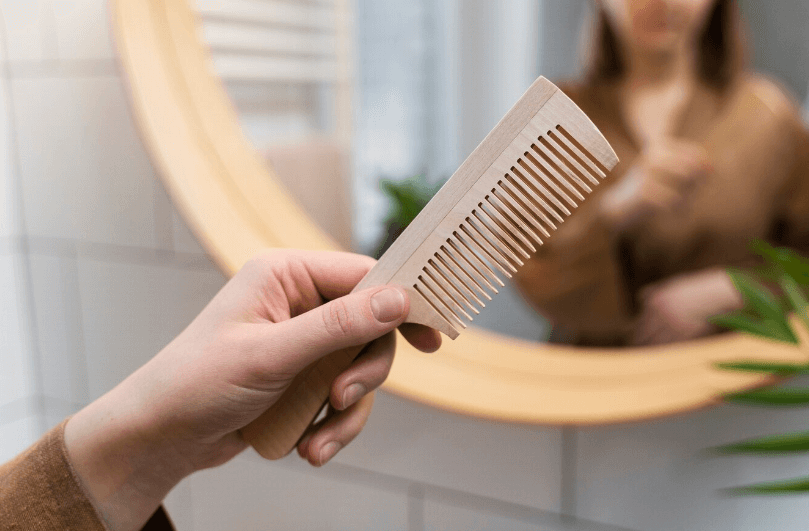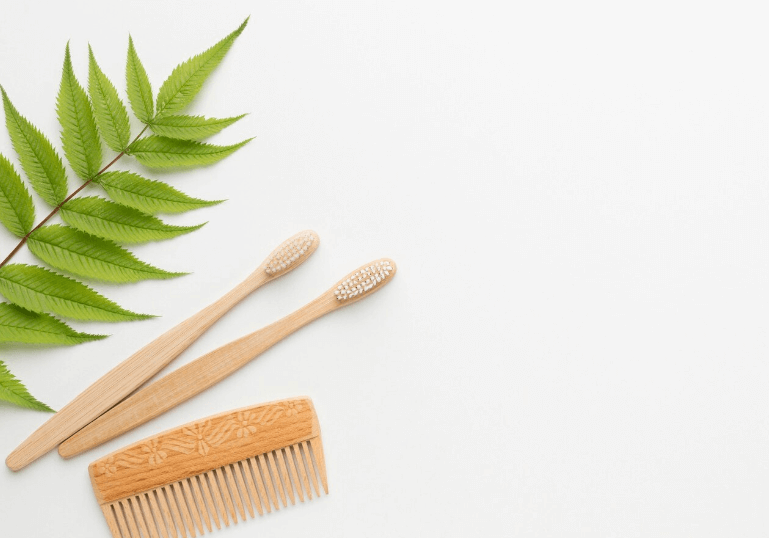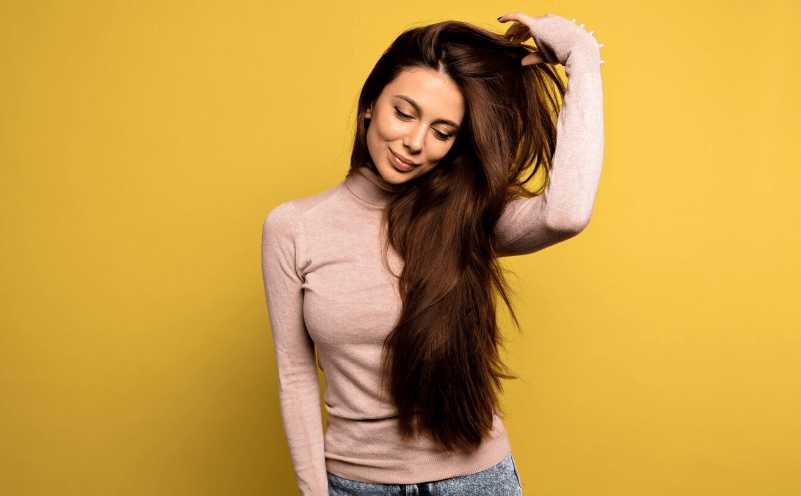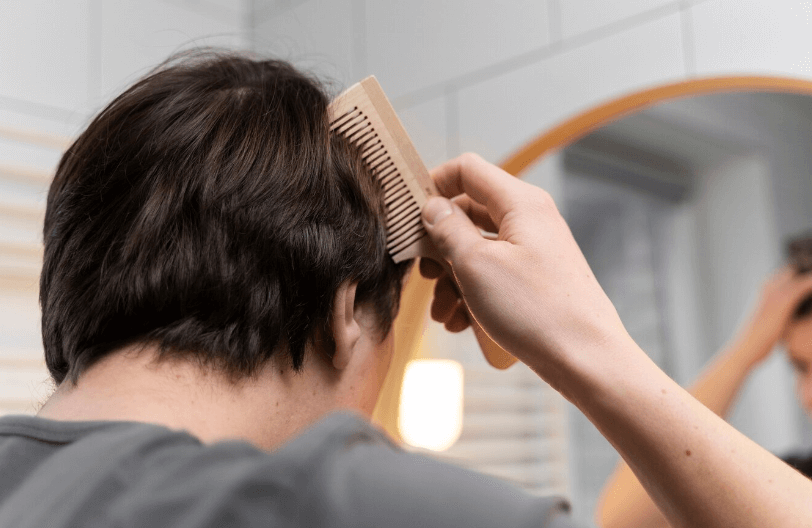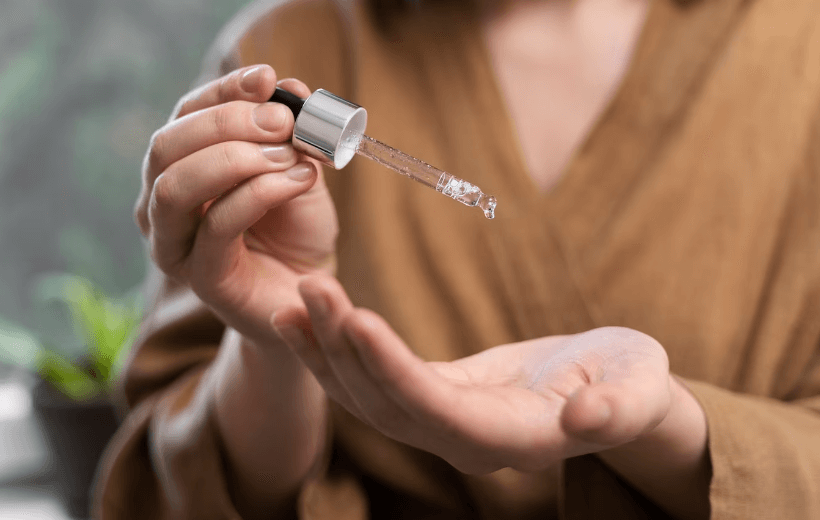Hair thinning? Black cumin seed oil could be the solution you are looking for for hair growth. It is said to stimulate the growth of thicker hair. There are so many easy-to-apply application methods and homemade products that can help strengthen the scalp and, therefore, the hair. Try it yourself and find out if it is for you!
We’ll explore how black cumin seed oil can help with hair growth, the precautions to take, and how to apply the oil properly. It’s time to reveal the secrets of this mysterious product and see if it will work for you and help you get the hair growth you want!
- Natural black cumin seed oil for hair growth comes from the nigella, the black caraway plant.
- It has numerous hair advantages, including increased shine, reduced irritation, and encouraging hair growth.
- Black cumin seed oil can be used by applying it directly to your scalp, mixing it with other oils(such as Rosemary oil, peppermint oil,Sesame oil, or Amla hair oil), or taking it as a supplement. For better results, use it with a neem comb.
- Black cumin seed oil for hair growth is safe for most people, but you should do a patch test before using it and consult your doctor if you have any medical conditions or allergies.
What is Black Cumin Seed Oil?
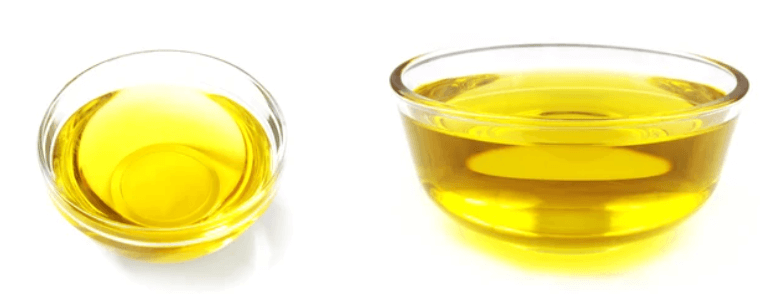
Have you ever heard of black cumin seed oil? It is a natural oil from the plant nigella or black caraway. For thousands of years, it has been used for cooking and medicine. But did you know it can also help your hair grow longer and more robust?
Black cumin seed oil is rich in nutrients that hair needs, such as fatty acids, vitamins, minerals, and antioxidants. These nutrients nourish hair follicles, protect hair from damage, and stimulate new hair growth.
But how does black cumin seed oil work for your hair? And how can you use it to get the best results? In this essay, we’ll answer these and other questions. Additionally, we will provide some black cumin seed oil hair development tips and methods.
Benefits of Black Cumin Seed Oil for Hair growth
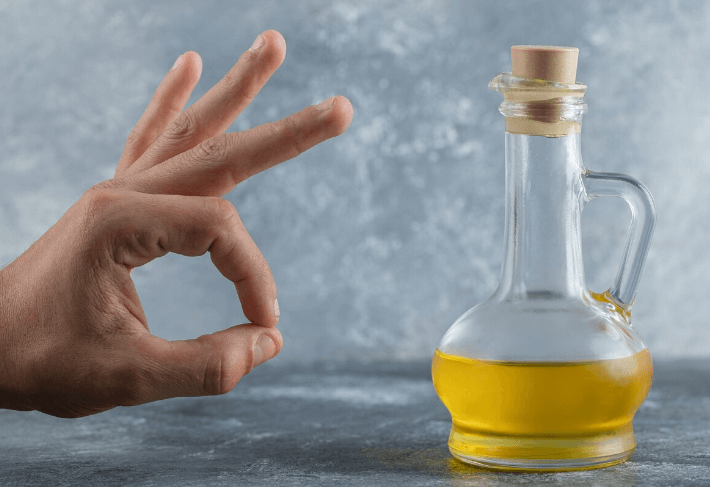
The black cumin seed oil for hair growth has many benefits for your hair, whether you have thinning hair, dry hair, or damaged hair. Here are some of the benefits of black cumin seed oil for hair:
How to Use Black Cumin Seed Oil for Hair Growth
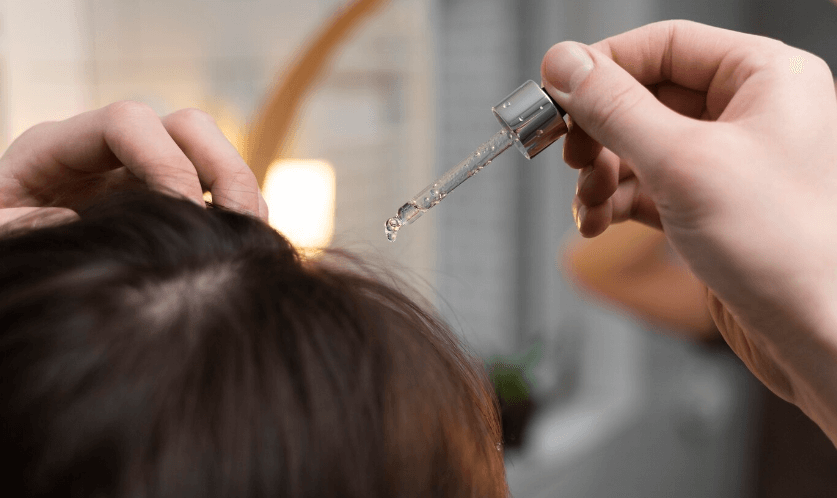
There are various ways to use black cumin seed oil for hair growth, depending on your preferences and level of convenience. The following are a few of the most popular applications for black cumin seed oil in hair growth:
Black cumin seed oil can be used directly on your scalp and gently massaged for several minutes. This can help the oil penetrate your scalp and reach your hair follicles. Let the oil stay on your scalp for at least half an hour, possibly overnight, and then use shampoo and conditioner to remove it. For the best results, do this once or twice a week.
Black cumin seed oil can be mixed with other oils or products that are good for your hair, such as coconut oil, olive oil, castor oil, honey, aloe vera, or yoghurt. You can apply the mixture to your scalp and hair, leave it on for at least 30 minutes or overnight, and wash it off with shampoo and conditioner. For the best results, do this once or twice a week.
You can also take black cumin seed oil in capsule or liquid form. This can help you get the benefits of black cumin seed oil from the inside out. Before taking supplements, follow the label’s dose recommendations or speak with your physician. Take black cumin seed oil supplements daily or as needed for best results.
When applying black cumin seed oil for hair growth , incorporate a gentle scalp massage to stimulate blood flow and potentially enhance absorption.
Tips and Tricks for Using Black Cumin Seed Oil for Hair Growth
Here are some tips and tricks for using black cumin seed oil for hair growth:
Black cumin seed oil is primarily harmless for hair growth. However, some people may experience sensitivities or allergic responses. To avoid adverse effects, you should do a patch test before using it on your scalp or hair. To do a patch test, apply a small amount of black cumin seed oil to a small area of your skin, such as your wrist or behind your ear. Wait 24 hours and see if you have any signs of irritation, such as redness, itching, swelling, or rash. You should not use black cumin seed oil on your hair if you do. If you don’t do it, you can use it usually.
Black cumin seed oil for hair growth can be more effective if you warm it up slightly before using it on your scalp or hair. This can help the oil penetrate your scalp and hair better and faster. To warm up black cumin seed oil, place the bottle in a bowl of hot water for a few minutes or microwave it for a few seconds. Ensure the oil is not too hot before applying it to your scalp or hair, as it can burn or damage your skin.
After applying black cumin seed oil to your scalp or hair, you can use a shower cap or towel to cover your hair. This can help trap the heat and moisture and enhance the oil’s effects. It can also prevent the oil from dripping or staining your clothes or bedding. Leave the shower cap or towel on your hair for at least 30 minutes or overnight and remove it before washing it.
Black cumin seed oil can be sticky and greasy and may leave a residue on your hair if you don’t wash it off properly. To avoid this, use a mild shampoo and conditioner to wash your hair thoroughly after using black cumin seed oil. To remove all of the oil from your hair, you might need to shampoo it twice or more. For added protection against buildup and pollutants, you can also use a shampoo for hair loss once a week.
Combine black cumin seed oil for hair growth with other hair-nourishing ingredients like honey, yogurt, or avocado for a deep conditioning hair mask. Leave it on for 30 minutes to an hour before rinsing thoroughly.
Are there any side effects of using black cumin seed oil for hair growth?
Most people can safely use black cumin seed oil, while some may have adverse side effects. Some of the possible side effects of using black cumin seed oil are:
- Nausea and vomiting: Some people may feel sick or vomit after taking black cumin seed oil, especially if they take too much or have a sensitive stomach.
- Abdominal bloating and pain: Black cumin seed oil may cause gas, bloating, or cramps in some people, especially those with digestive issues or who take it with food.
- Nasal dryness: Applying black cumin seed oil to the nose may dry the nasal passages and cause irritation or bleeding.
- Rash: Some people may experience a skin rash or allergic reaction after applying black cumin seed oil topically or orally, particularly if they have sensitive skin or a history of allergies.
- Low blood sugar: Black cumin seed oil may lower blood sugar levels in some people, particularly those who have diabetes or take blood sugar-regulating drugs. This may cause symptoms such as dizziness, fatigue, or confusion.
These are some potential side effects of using black cumin seed oil. However, they may not occur in everyone or may be severe. To reduce the risk of side
Conclusion
Black cumin is a natural oil that can help your hair grow longer and more robust. It improves the condition of your hair in several ways, including enhancing lustre, lowering inflammation, and encouraging hair growth. You can use black cumin seed oil by applying it directly to your scalp, mixing it with other oils or products, or taking it as a supplement.
You can also use black cumin seed oil for hair growth by following some tips and tactics, including patch testing, heating, covering, and cleaning the oil. Black cumin seed oil is safe for most people, but you should consult your doctor if you have any medical conditions or allergies.
We hope this explanation of black cumin seed oil’s application for hair development was helpful. Try it out and see the difference for yourself!
Frequently Asked Questions about Black Cumin Seed Oil for Hair Growth
How can black cumin seed oil be used for hair growth?
For additional benefits, black cumin seed oil can be combined with another oil, such as coconut or olive oil, and applied straight to the scalp and hair. Shampoo the area after using the oil on the scalp and letting it sit for at least half an hour.
Are all types of hair suitable for using black cumin seed oil?
Sure, black cumin seed oil is safe for hair growth for most hair types. However, before using it heavily, you should always do a patch test to rule out irritation or allergic reactions.
How frequently should I use black cumin seed oil for hair growth?
For optimum results, apply black cumin seed oil for hair growth two to three times each week. Maintaining changes in scalp health and hair growth over time requires consistency.
Can conditions other than hair loss be treated with black cumin seed oil?
Yes, black cumin seed oil has antibacterial and anti-inflammatory qualities that can help treat diseases like dandruff and inflammation and promote a healthier scalp environment favourable to hair development.
Are there any risks of using black cumin seed oil for hair growth?
Although black cumin seed oil is generally safe, some people may generate allergic responses or skin irritation. Before applying black cumin seed oil extensively on the scalp, it is imperative to dilute it appropriately and conduct a patch test.
Can black cumin seed oil be combined with other essential oils to maximize the advantages of hair growth?
You may make a bespoke hair growth blend by combining black cumin seed oil with other essential oils like peppermint, lavender, or rosemary. Ensure you appropriately dilute the oils and do a patch test before using.
